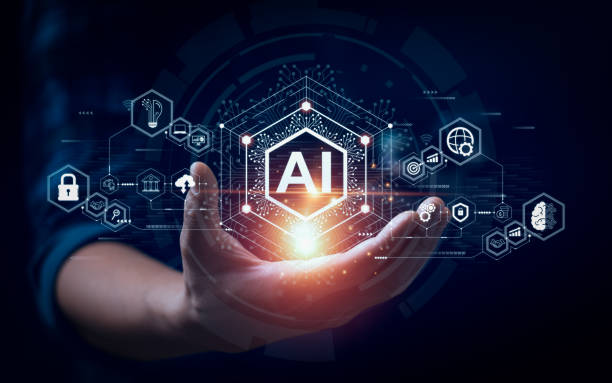Industry-Specific Use Cases for Generative AI Consulting
Companies always need a new approach to stay ahead of others in the modern world of the twenty-first century. Nowadays, artificial intelligence (AI) has become an agent of transformation in business operations and decision-making.
Generative AI is one very fast-growing subset of AI that has enjoyed popularity in many industry sectors. This article is about different uses for generative AI as well as provides some AI cases in business, discussing three domains for AI and giving more attention to AI consultancy on using those kinds of technologies in this world.
Understanding Generative AI
Generative AI (also known as generative adversarial networks, or GANs) is a subtype of artificial intelligence centered on creating content that looks as if made via human input. It operates by using two neural networks: a generator and a discriminator.
A generator will produce, and a discriminator will judge whether or not. However, GAN output becomes more refined through an endless loop of feedback and correction.
Generative AI Examples
It is highly noteworthy that generative AI has achieved phenomenal progress in numerous fields, overhauling procedures and creating avenues. Here are some generative AI examples:
1. Creative Content Generation: Generative AI has the potential for use in advertising and media where an AI content tool could produce gripping ad copy lines, beautiful graphics, or even compose tunes. The use of this app greatly cuts down on the production of great literature.
2. Healthcare: Artificial synthetic medical images like X-rays and MRIs can be used for training and improving diagnostic algorithms through generative AI. Such synthesized images may also be useful for training AI models where no real patient data is available.
3. Finance: Generative AI can be used in the financial domain; for instance, it can be applied in terms of fraud detection as well as risk assessment. GANs use historical data to synthesize the creation of new data sets, thus assisting financial institutions to generate more dependable risk and fraud identification models.
4. Product Design: Generative AI gives a road to coming up with sensible 3D product models. Such generative AI is vital to planners, designers, and engineers as it gives them groundbreaking thoughts and designs they could embrace.
5. Language Translation: With advancements made in AI-driven language translation devices, individuals can have meaningful discussions across various languages. Generative AI makes the best translations, making it indispensable for any worldwide business.
AI in Business Examples
For businesses to succeed and develop, integrating generative AI solutions into business activities is essential to remaining serious. Here are some AI in business examples, showcasing the extraordinary effect of AI across different domains:
1. Client support: Client assistance has changed through the production of chatbots and other remote helpers controlled by man-made consciousness. The virtual specialists answer client questions quickly and proficiently, which works on experience.
2. Inventory network The board: For instance, AI-fueled calculations streamline inventory network strategies by forecasting demand, lowering use, and mitigating overload. Amazon utilizes man-made consciousness to improve stockrooms and make quick conveyances.
3. Marketing and Personalization: With this, businesses can examine the inclinations or conduct of their purchasers through AI. The organization can utilize this information to create individualistic advertising messages and product ideas, leading to an increased conversion rate and client loyalty.
4. Manufacturing: Computerized reasoning (AI) empowered advanced mechanics and mechanization frameworks to upset manufacturing by improving productivity and eliminating blunders that can be attributed to humans. The frameworks are essential for maintaining ideal product quality standards while simultaneously having the capacity to adjust to changes in the production cycle.
5. Human Resources: AI makes the enrollment cycle simple by resuming examinations, screening candidates, and, in some cases, even initial interviews. To start with, this gives cost savings and helps pick appropriate candidates for the position.
6. Voice AI in Lead Generation: Voice AI is revolutionizing lead generation by enabling businesses to interact with potential customers through voice-enabled virtual assistants. These tools can gather real-time data from conversations, identify customer pain points, and provide tailored responses to inquiries. This helps businesses better understand their audience and optimize their marketing efforts, ultimately driving higher engagement and conversions.
The Three Domains of AI
AI can be classified into 3 domains, each with its own unique arrangement of uses and difficulties:
1. Narrow AI (Counterfeit Narrow Intelligence, or ANI): This is a region where AI frameworks work for specific capabilities that fall under this class. Some examples of AI include voice aides like Siri and Alexa, as well as proposal calculations utilized by streaming services like Netflix.
2. General AI (Fake General Intelligence, or AGI): Dissimilar to narrow AI, general man-made brainpower tries to copy human abilities in different settings. Getting to AGI has been a fantasy yet to be attained; striking steps have, nonetheless, not been accomplished.
3. Generative AI: Explicitly, generative AI manages the advancement of seemingly human-made materials like text and pictures.
The Job of AI Consulting
For instance, as AI innovation becomes predominant in different areas, the demand for capable guidance and consulting services has significantly increased. Associations need information and abilities to apply AI properly, which entails implementing generative AI for creating content or using AI-implanted arrangements in business capabilities.
AI consulting firms, for example, N-iX, assist businesses with getting all they can out of AI. They have an extensive variety of involvement in various areas, making it workable for them to foster redesigned arrangements given a specific organization's expectations or aims. AI advisors can help in the following ways:
Vital Planning: Analyzers help associations create a business system using computerized reasoning. This is where they assess the organization's state, find conceivable AI applications, and guide a course to execution.
Training and backing: For instance, associations might have to train their representatives on the most proficient method to handle AI innovation and guarantee they function admirably together. This is given through training programs and ongoing help from AI specialists.
Consistency and Moral Contemplations: AI advisors foster AI answers for industry guidelines and morals accordingly, minimizing legitimate and moral outcomes.
Conclusion
Finally, generative AI is transforming holiness and encouraging innovation in happy creation, medical care, finance, and product design, among others. In any case, AI has to a great extent been integrated into business processes as of now, and the three sorts of AI—narrow AI, general AI, and generative AI—address an expansive domain of usage. AI consulting is significant in leading associations to use AI for adequacy in this changing climate.








